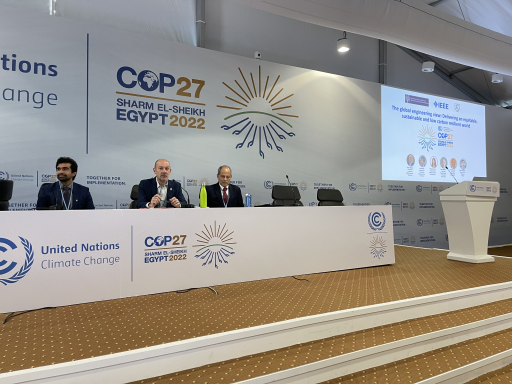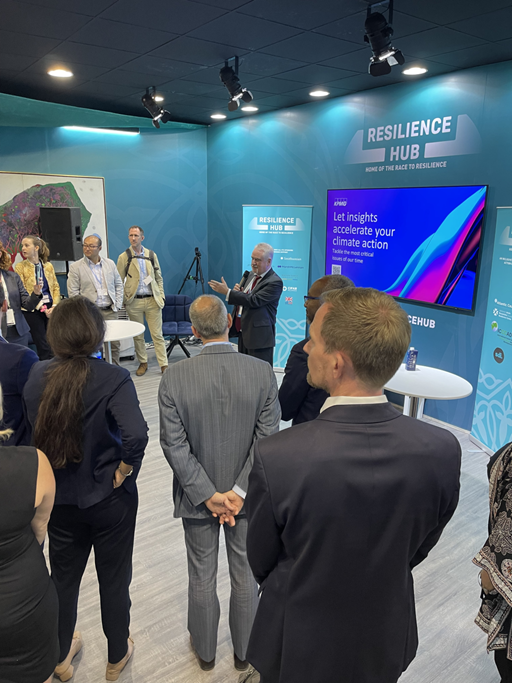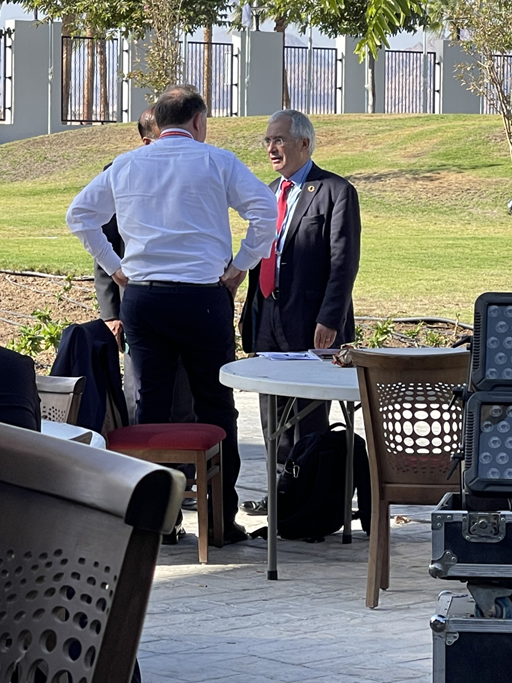Today's COP27 update will be quite a short one as negotiators continue to practise the art of diplomacy and delve deeply into the minutia of complex elements of agenda issues. As an example, negotiations can often spend hours debating (aka filibuster) whether a suggested recommended course of action is to be described as 'could' or 'should'. And after 20 or so countries have had their say on any particular issue, there's never much time left in what are called 'informal' sessions for the co-chairs to reorientate discussions back out of the 'trees for the forest' again.
In sparing readers of the details of negotiations, please note that I will summarise the status and progress of important week 1 negotiated outcomes in a more detailed report next Monday, 14 November 2022.
Nonetheless, I think today has been a bit of a triumphant one for engineering in general for 3 main reasons:
- The first is that engineering clearly has a very influential champion within the business of the UNFCCC and IPCC in Jeff Sachs, an eminent climate economist from Columbia University. Jeff not only espoused today in an IPCC event the virtues of engineers but also stressed their critical role in addressing climate change. As an economist myself, Jeff perfectly and publicly articulated my own views on the role of engineering and economics but of course he did it much more eloquently than I ever could. I really commend everyone to listen to Jeff's 10 minutes of observations (use this link; and listen from 1:25 to 1:34 (H:MM). Jeff is also the Chair of the UN's Council of Engineers for the Energy Transition

- The second is the formal UNFCCC event which was hosted by the World Federation of Engineering Organizations (WFEO) with the theme "The global engineering view : Delivering an equitable sustainable and low carbon resilient world" (see link). While very poorly attended by negotiators, Parties and civil society (at best a handful of attendees), it served as an opportunistic platform for me to publicly suggest the convening of the profession in order for it to be highly impactful at COP28 in Dubai; so please watch this space ...

- And finally, I learnt today that the UN Secretary General, Antonio Guterres is himself an engineer; and this presents a somewhat opportunistic avenue for the profession to be enormously influential at the highest levels of the UN's climate, environment, and SDGs treaties and conventions.
I certainly don't want to underplay the importance of these negotiations that are proceeding in week 1 of the COP, or to discount the extreme sensory overload of eclectic discussions, numerous meetings and briefings and diverse showcasings of climate strategies, initiatives and projects. And all 173 formal agenda items being prosecuted need to somehow (in theory at least) start to conclude their recommendations in draft form by COB Friday, 11 November. This means that discussions are lifted out of the ‘informal’ and ‘informal-informal’ meetings back into the 'contact groups' which afford Parties with a more formal negotiating space. Contact group recommendations then get forwarded to the Presidency for either deliberation and decision on Saturday and/or pushed down the road for ministerial interventions in week 2.
And thanks to KPMG for inviting EA to their reception last night; there are so many opportunities for climate-engineeirng related and relevant collaborations with so many globally leading organisations. There is much cause for optimism that the private sector is up to the challenge and is mobilising in an exponential manner to combat climate change.

Photo: Mr. Mike Hayes, KPMG Climate Change and Decarbonisation Leader and Global Head of Renewable Energy
Finally, a small bonus today for me was bumping into Lord Nicholas Stern again; I’ve had the good fortune of working with him in a previous role. Lord Stern is (another) eminent economist who continues to have a profound influence on the direction of travel of the global climate agenda. He was the author of the landmark 2006 review of the economics of climate change and is the author of a new landmark report released here at COP27 a couple of days ago indicating that developing countries may need up to US2 trillion per year by 2030 to help sufficiently mitigate and adapt. Lord Stern is co-chair of the Independent High-Level Expert Group on Climate Finance, and the published report was requested by the COP27 Egyptian Presidency and the COP26 UK Presidency.
